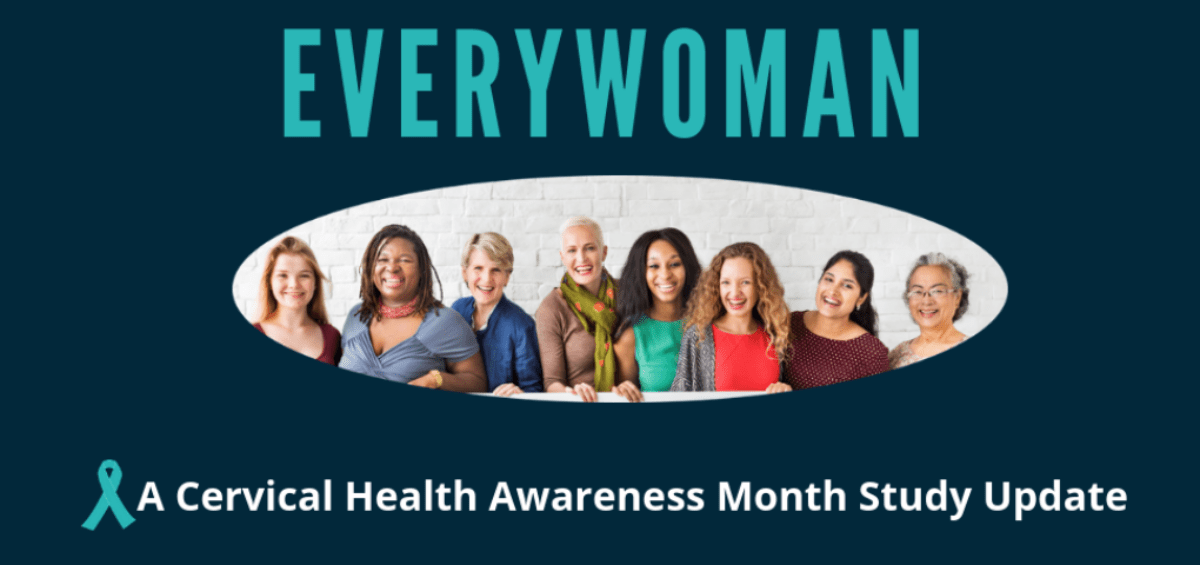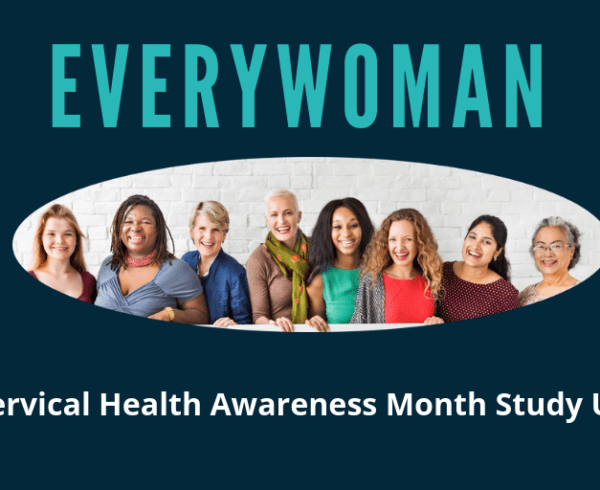EVERYWOMAN (Reproductive Care in the Safety-Net: Women’s Health Care after Affordable Care Act Implementation) is a women’s reproductive health study currently underway at OCHIN. This project looks at differences in health care utilization and outcomes among women receiving care in community health centers (CHCs) before and after the Affordable Care Act (ACA or Obamacare), and between Medicaid expansion and non-expansion states.
Project Updates:
In honor of Cervical Health Awareness Month, we would like to highlight some of our latest findings from the EVERYWOMAN study. Our preventive care analysis looked at six routine practices, including screenings for:
- Cervical cancer
- Gonorrhea
- Chlamydia
- HIV
- Blood pressure
- Vaccination for HPV and flu
Looking at the two years before (2012 and 2013) and two years after (2014 and 2015) the ACA, we wanted to see if women and girls were getting more care as recommended by national guidelines from the Centers for Disease Control and the US Preventive Services Task Force. For example, cervical cancer screening is recommended for women ages 21-64, either by receiving Papanicolaou (Pap) testing every 3 years, or for women ages 30-64 receiving Pap plus HPV co-testing every 5 years.
We used electronic health record data from 783,650 women, ages 11-65 years old, from CHCs in 14 states (12 expansion, 8 non-expansion) to compare the six recommended practices before and after the ACA and between Medicaid expansion and non-expansion states. After the ACA, nearly all six services (except blood pressure screening, which was high both before and after) increased in both Medicaid expansion and non-expansion states (Figure 1). In both Medicaid expansion and non-expansion states, more women got cervical cancer screening, HIV screening, and HPV vaccination after the ACA. After the ACA, the increase in chlamydia screening was higher among women in non-expansion states and the increase in flu vaccination was higher among women in expansion states. Although these increases after the ACA were all significant, the overall screening and vaccination rates remained lower than recommended, suggesting more work is needed in the CHC system to increase preventive care delivery to women and girls.


Figure 1: Changes in preventive services before and after the ACA and Medicaid expansion
OCHIN is conducting similar analyses to look at contraceptive, pregnancy, and postpartum care. We are also setting up another set of analyses to look at the community and neighborhood-level factors that may be impacting women’s preventive, contraceptive, and pregnancy-related care.
Our full study protocol is available online. For any questions, please contact OCHIN Research Associate and Engagement Care Leader, Anna Templeton, templetona@ochin.org.
Bringing Cervical Cancer and HPV Screening to OCHIN Research Grand Rounds
Also in honor of Cervical Health Awareness Month we are hosting a special Grand Rounds session with Dr. Erin Kobetz from University of Miami and Dr. Jennifer Potter from the Fenway Institute and Harvard University. Drs. Kobetz and Potter will be presenting on Cervical Cancer and HPV Screening in Special Populations on Friday, January 10 from 12-1 p.m. PT. Dr. Kobetz will present a participatory research project conducted with ADVANCE partner Health Choice Network to identify and address disparities in cervical cancer screening. Dr. Potter, also an investigator on the EVERYWOMAN team, will present a separate suite of studies focused on understanding and addressing cervical cancer screening disparities among transmasculine people accessing care at ADVANCE partner Fenway Health.
OCHIN Grand Rounds are open to everyone. To request a Grand Rounds invitation or join the mailing list, please email William Pinnock, pinnockw@ochin.org.







